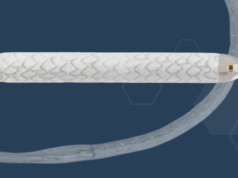 A recent analysis recalled Venovo and Vici venous stents—initiated last year—characterized “significant differences” between reported device and patient issues, and subsequent interventions for the two systems, with findings ultimately matching the reasons given for the recall at the time.
A recent analysis recalled Venovo and Vici venous stents—initiated last year—characterized “significant differences” between reported device and patient issues, and subsequent interventions for the two systems, with findings ultimately matching the reasons given for the recall at the time.
A team of researchers from the Virginia Commonwealth University School of Medicine in Richmond, Virginia, tapped the Food and Drug Administration (FDA) MAUDE database for all adverse event reports related to the recalls.
Delivering the results at the 2022 winter annual meeting of the Vascular and Endovascular Surgery Society (VESS) in Snowmass, Colorado (Jan. 27–30), Yuchi Ma, BS, a Virginia Commonwealth University second-year medical student, informed attendees the team had found 341 reports for the Venovo stent (BD) and 50 for the Vici (Boston Scientific).
The former was recorded as having activation failure (289 events, or 85%) as its predominant device-related issue, while the Vici saw 24 events, or 48%, registered as related to stent migration. Fracture, meanwhile, made up a significant proportion of reported issues for both (7% of the Venovo and 16% for the Vici).
“For both venous stent systems, the majority of the cases experienced no clinical symptoms or consequences,” Ma told VESS, but the Venovo “did seem to show a significantly higher percentage.”
Subsequent interventions performed included ballooning, stent extraction, utilization of a new device, and stenting over the previous stent, all of which were reported in higher percentages in the Vici.
The research team—completed by Michael F. Amendola, MD, divisional vascular chief at Virginia Commonwealth, Kedar S. Lavingia, MD, assistant professor of surgery, and James M. Dittman, BS, a senior medical student—conceded their findings were limited by either under- or overreporting given the MAUDE database does not capture all procedures performed using the two stent systems.
In a later interview with Vascular Specialist, Dittman elaborated: “The MAUDE database hasn’t been extensively used by the vascular community to characterize devices prior to these adverse events … [This] was an ideal exercise for us to see the power of MAUDE in determining whether or not those were the signals we actually saw in the adverse events that were reported.”
Ma added, “The findings that we saw in the database matched precisely with reasons why these stents were recalled.”












